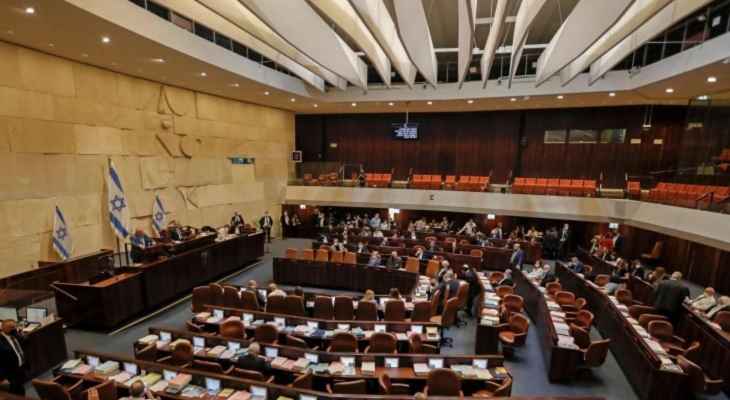In a race against time and opposition leader Benjamin Netanyahu’s attempts to form a purely right-wing government under his leadership until the last moment, to prevent the government coalition parties from holding elections, caught him by surprise and accelerated the dismantling of the government. The Knesset succeeded yesterday, on Tuesday, in passing a law on holding elections at the end of the month of October or the beginning of November. The draft will be put to a vote in preliminary reading at the General Assembly on Wednesday.
Meanwhile, Netanyahu began contacting a number of right-wing MPs from the ruling coalition, offering various temptations to persuade them to join him and vote against the election, and to form a government in the current Knesset (parliament), which caused the government to panic.
Defense Minister Benny Gantz, head of the Kol Lavan party, expressed this panic by sending a personal message to his bloc, warning of a “dangerous and immoral campaign of intimidation and temptation aimed at sabotaging our plan to go to the polls and preventing the election of Yair Lapid as prime minister.” is what Netanyahu and his people are saying.
Therefore, coalition leaders will work to completely close the door on Netanyahu, working to end today’s discussions and approve the new electoral law in preliminary and first readings, and approve it in second and third readings early next week. .
Prime Minister Naftali Bennett and Alternate Prime Minister and Foreign Minister Yair Lapid announced on Monday evening, with the approval of coalition party leaders, a sweeping move to dissolve the Knesset and hold early elections, the fifth in two and a year and a half, after the internal crisis escalated.
Following the shock of the latest announcement, a local radio station in Tel Aviv conducted an opinion poll showing that Netanyahu would step up his forces if elections were held today, but that he would not be able to form a government. A Radio 103 poll showed that within the two camps in Israel there is no way to form a government after the upcoming elections.
The poll showed that the Likud party won 36 seats (it has 30 today) and its far-right camp 59 out of 120 seats in the Knesset. As for the “change camp” led by Bennett and Lapid, he gets 55 seats (seven less than in the last election).
The decision will be up to the Joint Arab List led by Representative Ayman Oudeh, who will retain their strength with six seats. Thus, the political crisis will remain in place.
Source: El Nashra
